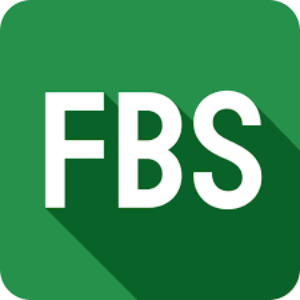
Forex Brokers in India has been making rapid strides. The increasing number of investors seeks ways to reap gains through currency trading. Professional guidance from a credible forex broker can significantly upgrade the trading experience and increase the chance of success. Given the choices, it is essential to know what sets a good and reputable forex trading broker apart from the rest.
Regulations play a key role in ensuring a secure trading environment. The Reserve Bank of India and the Securities and Exchange Board of India set the legal framework that governs forex trading in India. This includes licensing and overseeing brokers to protect investors. Understanding these regulations helps traders make informed choices, leading to better investment opportunities.
As I explore the landscape of forex brokers in India, I will evaluate their features, account types, and costs. I will also discuss the tools and support they offer to traders. Whether you’re just starting or looking to enhance your trading strategies, knowing how to choose the right broker can make a significant difference in your forex journey.
Key Takeaways
- Selecting a reliable forex broker is crucial for successful trading.
- Regulatory bodies ensure safety and compliance in forex trading.
- Understanding broker features can optimize your trading experience.
Regulatory Landscape of Forex Trading in India

The regulatory environment in India is crucial for forex trading. Understanding the roles of different regulatory bodies like SEBI and the RBI helps traders navigate the forex market safely and legally.
Overview of SEBI and FEMA Regulations
The Securities and Exchange Board of India (SEBI) oversees the securities market in India. It ensures that forex trading is fair and transparent. SEBI regulates brokers who offer forex trading services. The Foreign Exchange Management Act (FEMA) provides the framework for managing foreign exchange transactions. It focuses on facilitating external trade and payments and promotes the orderly development of the foreign exchange market. Traders must comply with FEMA to avoid penalties. Both SEBI and FEMA work together to set rules for regulated forex brokers in India, making the market safer for all.
The Role of the Reserve Bank of India
The Reserve Bank of India (RBI) is the central bank and plays a vital role in forex trading. It regulates the overall foreign exchange policy and oversees compliance with FEMA. The RBI manages the supply of foreign currency and works to maintain a stable exchange rate. It also monitors licensed forex brokers to ensure they adhere to regulatory standards. Additionally, the RBI is involved in facilitating trade and investments, making it essential for anyone looking to trade forex in India. Traders should stay informed about RBI regulations, as they directly affect market dynamics.
Understanding the Regulatory Framework
The regulatory framework for forex trading in India is designed to protect both traders and investors. The combination of SEBI’s oversight and FEMA’s provisions creates a comprehensive legal structure. Specific regulations govern permissions for forex transactions, aimed at preventing money laundering and fraud.
Regulated brokers must follow strict guidelines on capital adequacy and client fund management. Traders should select SEBI-regulated brokers for safety. Engaging with unregulated platforms poses risks, such as the potential loss of investment. This framework also helps promote transparency and accountability in the forex market, ensuring that both new and experienced traders have a safe environment to operate.
Top 5 Forex Brokers in India for Professional Traders
For Indian forex traders looking to start trading forex in India, choosing the right broker is crucial for success. While forex trading remains partially regulated by the central bank of India (RBI), professional traders can still access global markets through reputable platforms. Let’s explore the best forex trading platform options available to Indian traders, focusing on reliability, features, and regulatory compliance.
1. IC Markets – The Premium Choice for Professional Traders
IC Markets stands out as a leading broker that accepts Indian traders, offering an extensive range of forex pairs and spot forex trading opportunities. Their trading platforms in India include the popular MetaTrader 4 and 5, providing a comprehensive forex and CFD trading experience.
What sets IC Markets apart is their exceptional execution speed and competitive spreads. Professional traders particularly appreciate their ECN account option, though it’s important to note that retail accounts lose money when trading without proper strategy and risk management.
Key Features:
- Over 65 currency pairs
- Advanced charting capabilities
- Multiple deposit methods for Indian clients
- 24/7 customer support in multiple languages
- Competitive commission structure
IC Markets Feature Breakdown
| Feature Category | Details |
|---|---|
| Trading Platforms | MT4, MT5, cTrader |
| Minimum Deposit | $200 (₹16,500 approx.) |
| Spreads | From 0.0 pips (Raw Spread Account) |
| Commission | $3.50 per lot per side (Raw Spread) |
| Maximum Leverage | Up to 1:500 |
| Trading Instruments | 65+ forex pairs, Metals, Indices, Commodities |
| Account Currencies | USD, EUR, AUD, GBP |
| Customer Support | 24/7 multilingual support |
Professional Trader Benefits: IC Markets particularly shines for professional traders through its institutional-grade liquidity and advanced order execution. The platform’s server infrastructure is co-located with Equinix NY4, providing ultra-low latency execution crucial for scalping and high-frequency trading strategies. Their True ECN environment ensures no dealing desk intervention, making it ideal for algorithmic traders who need pristine market conditions.
2. Pepperstone – Excellence in Trading Technology
Pepperstone has emerged as one of the best forex trading platform providers, offering sophisticated tools for professional traders. Their variety of trading instruments extends beyond forex to include indices and commodities, making it an excellent choice for diversified trading strategies.
The platform provides access to both forex and CFD markets, with advanced analytical tools that help traders find the best entry and exit points. Their mobile trading apps ensure traders can monitor and execute trades on the go.
Pepperstone Feature Breakdown
| Feature Category | Details |
|---|---|
| Trading Platforms | MT4, MT5, cTrader |
| Minimum Deposit | $200 (₹16,500 approx.) |
| Spreads | From 0.0 pips (Razor Account) |
| Commission | $3.50 per lot per side |
| Maximum Leverage | Up to 1:500 |
| Trading Instruments | 60+ forex pairs, Metals, Indices, Cryptocurrencies |
| Account Currencies | USD, EUR, GBP, AUD, CAD |
| Customer Support | 24/5 multilingual support |
Professional Trader Benefits: Pepperstone excels in providing institutional-grade Smart Routing technology that connects traders to multiple liquidity providers. This ensures better price discovery and minimal slippage, crucial for large position sizes. Their advanced API solutions allow professional traders to develop and implement custom trading solutions, while the platform’s robust risk management tools enable sophisticated portfolio management strategies.
3. XM Group – Comprehensive Trading Solutions
XM Group has established itself as a reliable broker for Indian forex traders seeking a balanced trading environment. Their platform stands out for offering:
- Multiple account types catering to different trading styles
- Educational resources for both beginners and professionals
- Robust risk management tools
- Competitive spreads across major forex pairs
While some may consider them among unregulated brokers in the Indian context, they maintain strong international regulatory compliance and security measures.
XM Group Feature Breakdown
| Feature Category | Details |
|---|---|
| Trading Platforms | MT4, MT5, XM WebTrader |
| Minimum Deposit | $5 (₹415 approx.) |
| Spreads | From 0.6 pips |
| Commission | Zero commission on standard accounts |
| Maximum Leverage | Up to 1:888 |
| Trading Instruments | 55+ forex pairs, Stocks, Indices, Commodities |
| Account Currencies | USD, EUR, GBP, JPY |
| Customer Support | 24/5 multilingual support |
Professional Trader Benefits: XM Group stands out for professional traders through its multi-account management capabilities and advanced VPS solutions. The platform offers specialized institutional services including dedicated account managers and custom trading solutions. Their sophisticated risk management system allows for complex order types and automation, while the deep liquidity pool ensures stable trading conditions even during volatile market periods.
4. FP Markets – Innovation in Trading Technology
FP Markets offers one of the best forex trading app experiences, combined with professional-grade desktop platforms. Their service particularly excels in:
- Advanced trading technology
- Competitive pricing structure
- Extensive market analysis tools
- Multiple trading instrument options
- Professional client support
The platform’s trading CFDs offering is particularly comprehensive, making it a preferred choice for traders seeking diverse market exposure.
FP Markets Feature Breakdown
| Feature Category | Details |
|---|---|
| Trading Platforms | MT4, MT5, Iress |
| Minimum Deposit | $100 (₹8,250 approx.) |
| Spreads | From 0.0 pips (Raw Account) |
| Commission | $3 per lot per side |
| Maximum Leverage | Up to 1:500 |
| Trading Instruments | 60+ forex pairs, Shares, Indices, Commodities |
| Account Currencies | USD, EUR, GBP, AUD |
| Customer Support | 24/7 multilingual support |
Professional Trader Benefits: FP Markets provides professional traders with advanced tools for market analysis and automated trading. Their IRESS platform offers sophisticated charting capabilities and detailed market depth information. The broker’s tiered rebate system rewards high-volume traders, while their proprietary liquidity technology ensures consistent pricing even during major market events.
5. eToro – Social Trading Pioneer
eToro rounds out our list with its unique social trading features, making it an innovative broker that accepts traders from India. Their platform combines traditional trading capabilities with social features that allow traders to:
- Learn from successful traders
- Copy trading strategies
- Access detailed market analysis
- Trade multiple asset classes
- Utilize user-friendly interfaces
eToro Feature Breakdown
| Feature Category | Details |
|---|---|
| Trading Platforms | Proprietary eToro Platform |
| Minimum Deposit | $200 (₹16,500 approx.) |
| Spreads | From 1 pip |
| Commission | Zero commission on forex |
| Maximum Leverage | Up to 1:30 |
| Trading Instruments | 47+ forex pairs, Stocks, Crypto, ETFs |
| Account Currencies | USD |
| Customer Support | 24/5 multilingual support |
Professional Trader Benefits: eToro’s unique advantage for professional traders lies in its Popular Investor Program, which allows successful traders to earn additional income by having others copy their trades. The platform’s advanced portfolio analytics tools provide detailed performance metrics and risk analysis. Professional traders can also benefit from the platform’s extensive market research and sentiment analysis tools, which aggregate data from millions of traders worldwide.
Legal Considerations and Safety
Before opening an account with any forex brokers that accept Indian traders, it’s crucial to understand the legal framework in India regarding forex trading. While trading through international brokers is legal in India for specific purposes, traders should:
- Verify broker legitimacy
- Understand regulatory compliance
- Review trading conditions
- Check customer support quality
- Assess platform stability
Additional Professional Trading Considerations
For professional traders, these platforms offer several advanced features that can significantly impact trading success:
1. Advanced Execution Technologies
All five brokers invest heavily in their technological infrastructure, ensuring rapid execution speeds and minimal slippage. This is particularly crucial for scalping and high-frequency trading strategies where milliseconds can make a difference in profitability.
2. Risk Management Tools
Professional traders benefit from sophisticated risk management features including:
- Advanced order types
- Multiple stop-loss levels
- Trailing stops
- Position sizing calculators
- Portfolio heat mapping
- Real-time margin monitoring
3. Multi-Asset Trading
The ability to trade multiple asset classes through a single platform allows for:
- Portfolio diversification
- Cross-market arbitrage opportunities
- Correlation trading strategies
- Risk distribution across different asset classes
4. Professional Trading Conditions
Each platform offers special conditions for professional traders including:
- Higher leverage options
- Lower margin requirements
- Volume-based rebates
- Priority support
- Custom solutions for high-volume traders
Choosing a Forex Broker in India

Selecting the right forex broker can greatly influence your trading experience. There are several vital criteria to consider, along with the importance of regulation and investor protection.
Criteria for Selecting the Best Broker
When I look for the best forex brokers in India, I focus on several key criteria. First, I assess the trading platform offered. A user-friendly platform with reliable features makes trading easier. Next, I check the range of currency pairs available for trading. This variety affects my trading strategies and opportunities.
Another important criterion is the trading costs. This includes spreads and commissions, as high fees can reduce my profits. Additionally, I evaluate customer service. Response time and the effectiveness of support are essential for smooth trading, especially when issues arise. Lastly, I consider reviews and ratings from other traders to gauge broker credibility and performance.
Importance of a Well-Regulated Broker
Choosing a well-regulated broker is crucial for safety in my trading activities. In India, brokers must be registered with the Securities and Exchange Board of India (SEBI). This regulation helps ensure that brokers meet standards of conduct and financial practices.
A well-regulated broker provides a layer of trust. It protects sensitive information and preserves my investment. If a broker is not regulated, I risk dealing with potential fraud or scams. Thus, I prioritize brokers that display their regulatory status clearly on their website.
Investor Protection and Client Services
Investor protection is another cornerstone of my broker selection process. I look for brokers that offer investor protection schemes. These can provide partial compensation if a broker fails.
Additionally, outstanding client services enhance my overall trading experience. Efficient and accessible support is vital, especially when I encounter challenges. Brokers that provide educational resources, such as trading webinars or guides, also gain my preference. This ensures I am well-informed, helping me make better trading decisions.
Trading Platforms and Tools

Trading platforms and tools are essential for anyone looking to engage in forex trading in India. Understanding the various platforms available, as well as the tools that enhance trading strategies, makes a significant difference in trading success.
MT4 and MT5: Popular Platforms
MetaTrader 4 (MT4) and MetaTrader 5 (MT5) are among the most popular trading platforms used by forex traders in India. Both offer user-friendly interfaces that cater to both beginners and experienced traders. MT4 is known for its robust charting tools and automated trading capabilities through Expert Advisors (EAs).
MT5, the successor to MT4, includes additional features such as more timeframes, advanced order types, and built-in economic calendars. Both platforms provide a wide range of indicators that help in analyzing market trends. Many brokers offer these platforms, allowing traders to choose the one that best suits their needs.
Advanced Trading Tools and Features
Advanced trading tools can significantly enhance trading performance. Many forex brokers in India provide tools like algorithmic trading and copy trading features. Algorithmic trading allows traders to automate their strategies, executing trades based on pre-set conditions.
Additionally, tools for technical analysis, such as trend indicators and oscillators, help traders make informed decisions. Trading calculators to assess margin and leverage also play a vital role in risk management. Many brokers integrate these advanced tools into their platforms, making them accessible for traders looking to optimize their trading strategies.
Mobile Trading Capabilities
With the rise of mobile technology, mobile trading capabilities have become crucial for many traders. Most forex brokers in India offer mobile apps for trading on the go. These apps enable users to monitor their accounts, execute trades, and access real-time market information.
Mobile trading apps often include features like charting tools and alerts for price movements, ensuring traders never miss important opportunities. The convenience of trading from a smartphone or tablet allows for greater flexibility and responsiveness to market changes, making it easier for me to manage trades effectively.
Account Types and Trading Costs

When considering forex brokers in India, it’s important to understand the different account types and the associated costs. Account structures can vary significantly among brokers, affecting trading flexibility and fees.
Understanding Different Account Types
Forex brokers typically offer several account types to cater to different trading needs. These may include Standard Accounts, Mini Accounts, and VIP Accounts.
- Standard Accounts often require higher minimum deposits but provide more features and higher leverage.
- Mini Accounts are generally suited for beginners, allowing for smaller trades and lower deposits.
- VIP Accounts target experienced traders, offering reduced spreads and personalized services.
Choosing the right account type can greatly impact my trading experience. Each type comes with its own set of benefits, including varying levels of customer support and access to trading tools.
Assessing Trading Costs and Fees
Understanding trading costs is crucial. Most brokers charge a combination of commissions and spreads.
- Commissions are fees per trade and can vary by broker; some may offer commission-free trading.
- Spreads are the difference between the buying and selling price and can be fixed or variable.
It’s essential to assess how these costs might affect my profitability. For example, lower spreads can enhance performance in high-frequency trading. Additionally, trading fees for specific platforms or tools should be factored in.
Deposit and Withdrawal Options
When selecting a broker, I must also consider their deposit and withdrawal options. Brokers often support various methods:
- Bank transfers are common but can be slow.
- Credit and debit cards offer quick deposits, making them popular choices.
- E-wallets are gaining traction, appealing for their ease of use.
Some brokers may impose fees on withdrawals, which can impact my overall costs. It’s beneficial to review these aspects to ensure smooth transactions and avoid unexpected charges.
Trading Strategies and Investment Opportunities

Effective trading strategies and investment opportunities are crucial for anyone looking to succeed in forex trading. By understanding currency pairs, commodities, and risk management tools, I can make informed decisions in the forex market.
Developing Effective Trading Strategies
Creating a successful trading strategy requires careful planning. I focus on defining my trading goals, risk tolerance, and market knowledge. Key components include technical analysis, which involves using charts and indicators to forecast price movements. Additionally, I pay attention to market trends and news that could impact the forex market.
I also find it helpful to adopt different methods, such as day trading or swing trading, depending on my schedule and risk appetite. Implementing a structured approach enhances my ability to make quick decisions while managing potential losses effectively.
Exploring Investment in Currency Pairs and Commodities
In forex trading, I explore various currency pairs, including major pairs like EUR/USD and USD/JPY. Each pair presents unique opportunities driven by economic indicators and geopolitical events. It’s essential to stay informed about market changes, interest rates, and inflation rates that can affect currency values.
Investing in commodities adds another layer of diversification to my portfolio. For instance, I consider gold and oil, which often move independently of currencies. Understanding the dynamics of these commodities helps me make strategic choices about when to enter or exit a position.
Hedging and Risk Management
Hedging is crucial for protecting investments against unfavorable market movements. I use options and futures contracts to hedge against potential losses in my trading positions. Furthermore, setting stop-loss orders assists in limiting potential risks while preserving my capital.
I also analyze my trades regularly to refine my strategies and identify areas for improvement. Understanding the balance between risk and reward helps me navigate the forex market more confidently, ensuring I can respond effectively to changes in market conditions.
Customer Support and Educational Resources
When choosing a forex broker in India, customer support and educational resources are essential aspects to consider. Strong customer service can help resolve issues quickly, while good educational materials can enhance trading knowledge and skills.
Evaluating Broker’s Customer Support
Responsive customer support is crucial for a successful trading experience. I look for brokers that offer multiple channels of communication, such as live chat, email, and phone support. This ensures I can reach them quickly when needed. Additionally, having customer support staff who are knowledgeable about forex trading is vital.
I recommend checking the hours of availability. Some brokers provide 24/7 support, which is especially helpful for traders who operate in different time zones. Reading user reviews can also provide insights into the reliability and quality of the support offered. A successful trading environment often depends on how well a broker can assist its clients.
Future Outlook
As we progress through 2025, the forex trading landscape continues to evolve. Professional traders should regularly review their broker choices and adapt to changing market conditions. The best forex trading experience comes from choosing a platform that balances technology, security, and trading costs while providing reliable market access.
Remember that successful trading requires more than just finding the right broker – it demands dedication, strategy, and continuous learning. Always conduct thorough research and consider your specific trading needs when selecting a platform for your forex trading journey.
This comprehensive guide aims to help you find the best forex broker for your professional trading needs while navigating the complex regulatory environment of forex trading in India. Keep in mind that market conditions and broker offerings may change, so regular review of your broker choice is recommended for optimal trading performance.
Conclusion: Making Your Informed Choice in Forex Trading
The landscape of forex trading in India presents both opportunities and challenges for professional traders. Through our comprehensive analysis of the top 5 forex brokers – IC Markets, Pepperstone, XM Group, FP Markets, and eToro – we can see that each platform offers unique advantages for different trading styles and requirements.
When selecting a forex broker in India, traders must consider multiple factors:
- Regulatory Compliance: The importance of choosing brokers that adhere to SEBI and RBI guidelines while maintaining strong international regulatory standards cannot be overstated.
- Platform Capabilities: From advanced trading tools to mobile accessibility, the right platform should align with your trading strategy and technological needs.
- Cost Structure: Understanding the complete fee structure, including spreads, commissions, and hidden charges, is crucial for maintaining profitable trading operations.
- Professional Features: For professional traders, advanced executions, institutional-grade liquidity, and sophisticated risk management tools are essential considerations.
- Support Infrastructure: Reliable customer support and comprehensive educational resources contribute significantly to a successful trading experience.
The forex trading environment in India continues to evolve with technological advancements and regulatory changes. Professional traders should:
- Regularly review their broker relationships
- Stay updated with regulatory changes
- Continuously assess their trading needs
- Monitor changes in broker offerings and services
- Maintain a balance between cost, features, and reliability
Remember that success in forex trading isn’t solely dependent on choosing the right broker – it’s a combination of strategy, market knowledge, risk management, and the right trading infrastructure. Your choice of broker should complement your trading style while providing the security and tools necessary for professional trading in today’s dynamic forex market.
This article serves as a guide for making an informed decision, but traders should conduct their own due diligence and possibly test multiple platforms through demo accounts before committing to a specific broker. As the forex market continues to evolve, staying informed and adaptable will be key to maintaining a competitive edge in forex trading.
Frequently Asked Questions
I will address some common questions about forex brokers in India. This information can help traders understand regulatory requirements, choose reliable brokers, and ensure their trading experience is secure.









